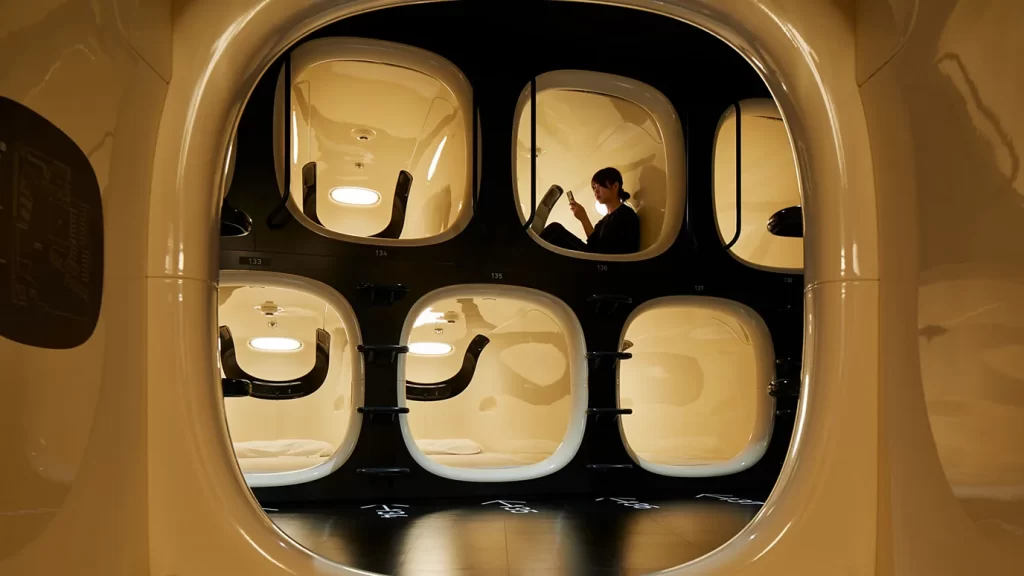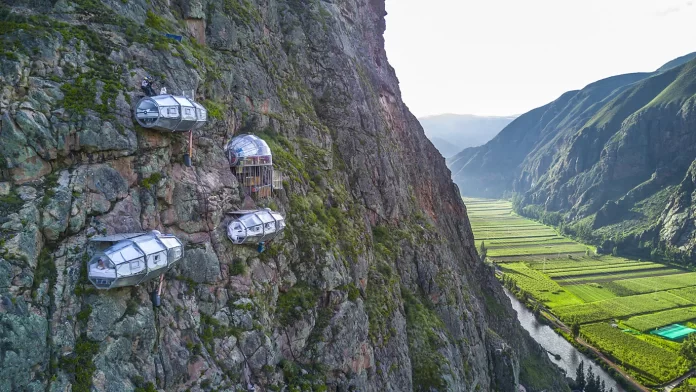From Colombia’s upcycled sewer pipes to spheres suspended in the sky in Canada, capsule hotels have been reinvented for a new generation of travellers.
By night, the world’s first capsule hotel (founded in Osaka, Japan in 1979) must have looked like a morgue, with neat rows of narrow sleeping capsules each containing a recumbent body. But the following day, the occupants – mostly businessmen who had worked late – would rise up and head back to the office, grateful for this efficient sleep solution that had saved them a commute home in the early hours.
As the concept spread, tourists happy to sleep in a room no bigger than its bed began to bunk up alongside them, eager to sample this unusual aspect of Japanese culture. Fast-forward to today, and high hotel room rates, fuelled by years of rising real estate prices, have supercharged this typically low-cost concept, which offers budget travellers priced out of traditional hotels more privacy than a hostel dormitory and more comfort and connectivity than camping. The capsules, which are predominantly single-occupancy, also answer the current boom in solo travel, with single-sex capsule hotels providing additional security.
With the global capsule hotel market projected to reach $327m by 2031, curious hybrids have emerged to sustain the trend and attract new customers. They’re tempting the TikTok generation with increasingly outlandish forms, from upcycled sewer pipes in the Colombian desert to space-age pods with a dashboard of ambient controls in downtown Sydney, Australia – all promising a unique experience and shareable stories for social media. Meanwhile capsule-cum-bookstores invite book lovers to snooze among the shelves, and boutique versions bring luxury to a traditionally no-frills market with fancy decor or promises of fluffy duck-feather duvets.
As the concept continues to reinvent itself, here are eight of the most extraordinary examples.

A sleep laboratory
Nine Hours, a chain of 13 hotels across Japan, from Fukuoka in the west to the north-east island of Hokkaido, has an unusual by-product: sleep data. In the Shinagawa Station (men only) and Akasaka branches, guests can sign up for a “9h sleep fitscan” service, where sensors detect everything from breathing to facial expressions to generate a sleep report that tracks their heart rate, identifies sleep apnea and even monitors snoring. In a sector where a novel or low-budget stay is often prioritised over comfort, Nine Hours’ interest in how well its guests are sleeping sets it apart.
Across the franchise, the white, minimalist decor continues this clinical theme, while its rows of sleek, shiny sleeping pods would not look out of place on the set of a science-fiction movie. The name refers to the hotel’s cost-cutting concept that reduces room rental to the essential nine hours, allowing seven hours for sleep and an hour on either side for washing and dressing. Just need a nap? Hourly rates are also available.



